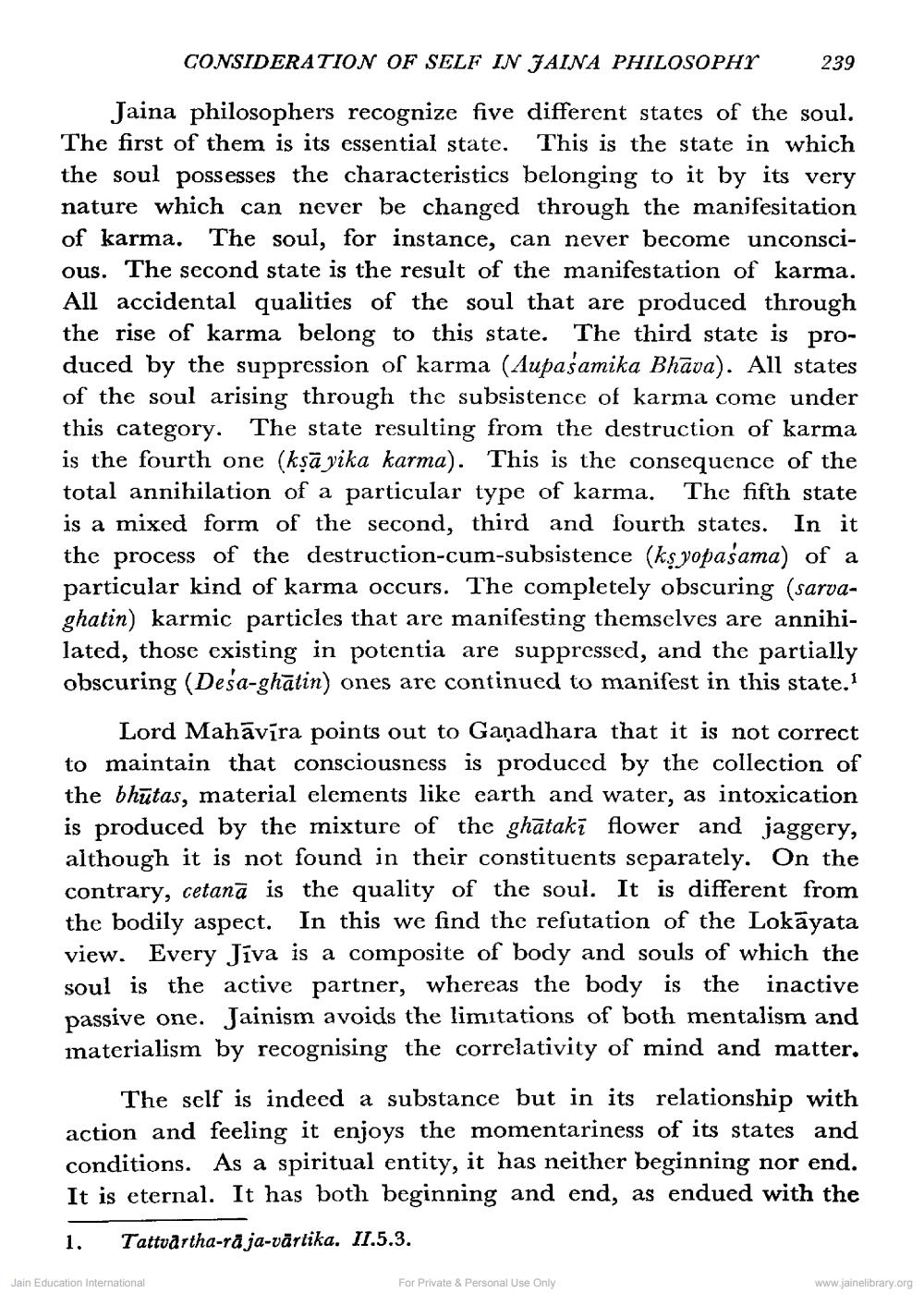________________
CONSIDERATION OF SELF IN JAINA PHILOSOPHY
Jaina philosophers recognize five different states of the soul. The first of them is its essential state. This is the state in which the soul possesses the characteristics belonging to it by its very nature which can never be changed through the manifesitation of karma. The soul, for instance, can never become unconscious. The second state is the result of the manifestation of karma. All accidental qualities of the soul that are produced through the rise of karma belong to this state. The third state is produced by the suppression of karma (Aupaśamika Bhāva). All states of the soul arising through the subsistence of karma come under this category. The state resulting from the destruction of karma is the fourth one (kṣayika karma). This is the consequence of the total annihilation of a particular type of karma. The fifth state is a mixed form of the second, third and fourth states. In it the process of the destruction-cum-subsistence (kṣyopasama) of a particular kind of karma occurs. The completely obscuring (sarvaghatin) karmic particles that are manifesting themselves are annihilated, those existing in potentia are suppressed, and the partially obscuring (Desa-ghatin) ones are continued to manifest in this state.1
Lord Mahāvīra points out to Gaṇadhara that it is not correct to maintain that consciousness is produced by the collection of the bhūtas, material elements like earth and water, as intoxication is produced by the mixture of the ghataki flower and jaggery, although it is not found in their constituents separately. On the contrary, cetana is the quality of the soul. It is different from the bodily aspect. In this we find the refutation of the Lokayata view. Every Jiva is a composite of body and souls of which the soul is the active partner, whereas the body is the inactive passive one. Jainism avoids the limitations of both mentalism and materialism by recognising the correlativity of mind and matter.
The self is indeed a substance but in its relationship with action and feeling it enjoys the momentariness of its states and conditions. As a spiritual entity, it has neither beginning nor end. It is eternal. It has both beginning and end, as endued with the
Tattvartha-raja-vārtika. II.5.3.
1.
239
Jain Education International
For Private Personal Use Only
www.jainelibrary.org




